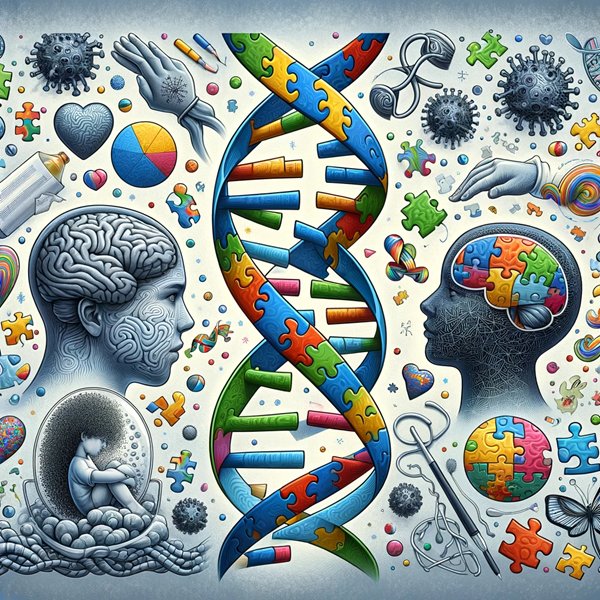Autism and Genetics: Unraveling the Complex Ties
Autism Spectrum Disorder (ASD) is a complex neurodevelopmental condition that has long been a subject of research and discussion. One of the critical areas of this research is the role of genetics in the development of autism. This blog aims to explore the intricate relationship between autism and genetics, shedding light on how our genes might influence the likelihood of developing ASD.

Autism Spectrum Disorder (ASD) is a complex neurodevelopmental condition that has long been a subject of research and discussion. One of the critical areas of this research is the role of genetics in the development of autism. This blog aims to explore the intricate relationship between autism and genetics, shedding light on how our genes might influence the likelihood of developing ASD.
Understanding Autism Spectrum Disorder
Before delving into the genetic aspects, it's essential to understand what ASD entails. Autism Spectrum Disorder is a range of conditions characterized by challenges with social skills, repetitive behaviors, speech, and nonverbal communication. The term "spectrum" in ASD reflects the wide variation in challenges and strengths possessed by each person with autism.
The Genetic Link to Autism
A Complex Puzzle
The genetics of autism is a complex puzzle. Unlike some conditions caused by a single gene mutation, autism appears to result from a combination of genetic and environmental factors. This complexity makes understanding and predicting autism a challenging task for researchers.
What Research Says
Studies suggest that there's no single "autism gene." Instead, several genes appear to be involved in the development of autism. Some of these genes might influence brain development or the way brain cells communicate, or they might determine how the body metabolizes certain substances.
Heritability Studies
Twin and family studies have been pivotal in understanding the heritability of autism. These studies show that autism often runs in families, and identical twins are more likely to both be affected by ASD compared to fraternal twins or other siblings.
Genetic Mutations and Autism
Spontaneous Mutations
Some cases of autism are believed to be caused by spontaneous mutations. These are genetic changes that occur in the child’s DNA, rather than being inherited from either parent.
Rare Genetic Disorders
Certain genetic disorders are linked to a higher risk of autism. For example, conditions like Fragile X syndrome and Tuberous Sclerosis are associated with a higher ASD incidence.
The Environmental Factor
While genetics play a significant role, it's important to remember that environmental factors also contribute to autism. These can include issues during birth, the parents' ages, and pregnancy complications. However, it's crucial to note that vaccines do not cause autism, a myth that has been thoroughly debunked by research.
The Future of Research
The ongoing research into the genetics of autism is opening new doors. With advances in genetic testing, there's potential for earlier diagnosis and better understanding of the condition, leading to more effective personalized treatments.
Conclusion
The relationship between autism and genetics is intricate and multi-faceted. Understanding this connection is key to unraveling the mysteries of ASD and improving the lives of those affected by it. As research continues, we move closer to a more comprehensive understanding of autism, paving the way for advancements in care and support.
As we learn more about the genetic underpinnings of autism, it's essential to approach this knowledge with empathy and a commitment to using it to enhance the lives of those on the autism spectrum. In this journey, the role of genetics is not just a scientific inquiry but a pathway to deeper understanding and acceptance.
What's Your Reaction?
















